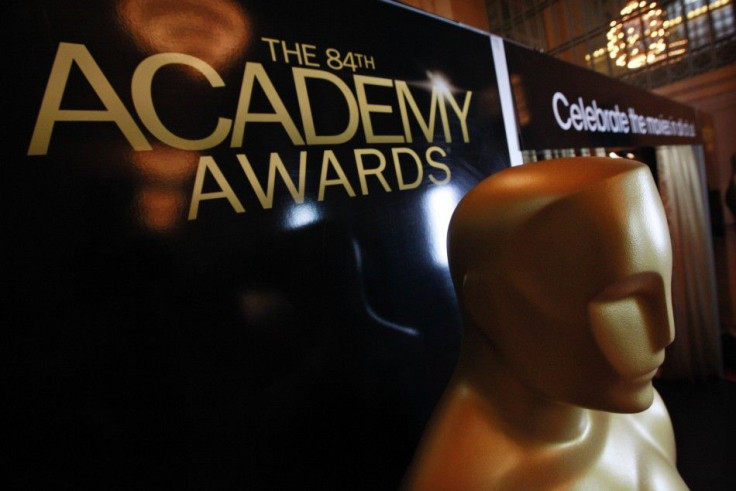Who Decides the Oscar Winners? New Report Raises Concerns about 2012 Academy Award Diversity

It's been a big secret for decades now: exactly who are the illustrious members of the Academy of Motion Picture Arts and Sciences? These film industry veterans select the recipients of the Academy Awards every year, and their identities are kept under tight wraps.
But on Sunday, an investigative report in the Los Angeles Times unraveled almost 90 percent of the mystery.
They confirmed what many have long suspected: the Academy membership is sorely lacking in diversity, and the film industry's most prestigious awards depend disproportionately on the opinions of middle-aged white males.
Getting the dirt on Academy membership was no easy task. There are currently 5,765 members, and the identities of most have historically been kept secret. Then, in 2004, the organization began releasing the identities of all invitees to the exclusive organization. So far, 1,026 names have been made public.
To figure out the rest, a team of Los Angeles Times reporters headed by John Horn and Nicole Sperling plumbed every source they could get their hands on. They conducted interviews, made connections, found resumes, read biographies, scanned social media and grilled publicists. They were able to confirm the identities of more than 5,100 voters, which is over 89 percent of the Academy's membership.
From there, they tallied up the numbers. They found that 94 percent of members were white. A full 77 percent were male. The median age of voters was 62. The inductions in recent years have been trending towards increased diversity, but not nearly enough to begin to reflect national demographics.
The report comes at an interesting time. Ceremony co-producer Brett Ratner recently stepped down after his homophobic and misogynistic comments caused public uproar. Scheduled host Eddie Murphy followed suit the very next day, leaving the gig to film veteran Billy Crystal.
In the 86-year history of the Academy Awards, African Americans have hosted the ceremony only four times. This will be Crystal's ninth run.
And this isn't the first time the Academy has faced diversity-related criticism. In 1996, reverend and civil rights activist Jesse Jackson organized protests and boycotts of television stations airing the ceremony. He was outraged that out of 166 award nominations that year, only one was for a minority. Jackson also caused a stir during 2011 Oscar season, noting that there was not a single minority nominee for any of the top five awards.
This year, he's continuing to push for change. It's about more than just an award ceremony, he explained. The Academy has such an impact on how the world sees people, and it does not have a good record. A lot of demeaning roles come out of Hollywood, denying minority talents. But this industry has a responsibility to represent diversity. You clearly have more and more of a black and brown market, and such a market should expect more diversity in those who appraise the industry.
Plenty of industry veterans, like Academy board member Frank Pierson, disagree. I don't see any reason why the academy should represent the entire American population, he told the L.A. Times. That's what the People's Choice Awards are for. We represent the professional filmmakers, and if that doesn't reflect the general population, so be it.
In his own opinion piece, Academy member William Goldstein noted that although diversity is important, there is no practical way to go about changing things. Academy members take their responsibilities very seriously, he wrote, adding that the demographics of the Academy do not constitute a social injustice. The [L.A.] Times should aim its darts elsewhere, perhaps at filmmakers. After all, the Academy can only select its members from those working on films currently being made. Since it is the filmmakers who hire the people who will become future Academy members, why pick on the Academy?
It doesn't look like Goldstein has anything to worry about -- Academy inductees are in it for life if they so choose. That means that it may be a very long time before the membership sees a significant influx of diversity.
But there is some progress. Jackson notes that this year, minorities including Viola Davis, Octavia Spencer and Demian Bichir are in the running for major awards. Sunday's event will also feature more minority presenters than 2011. As the ceremony itself begins to recognize a more diverse crowd of stars, Academy membership is likely to follow suit eventually.
But Jackson isn't leaving anything to chance. I intend to meet with the Academy leaders when this [ceremony] is over, because by next year we need to see some concrete changes, he said. The onus is on them to make this change. We're reminding them that all is not well.
© Copyright IBTimes 2024. All rights reserved.






















